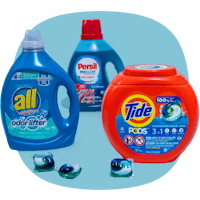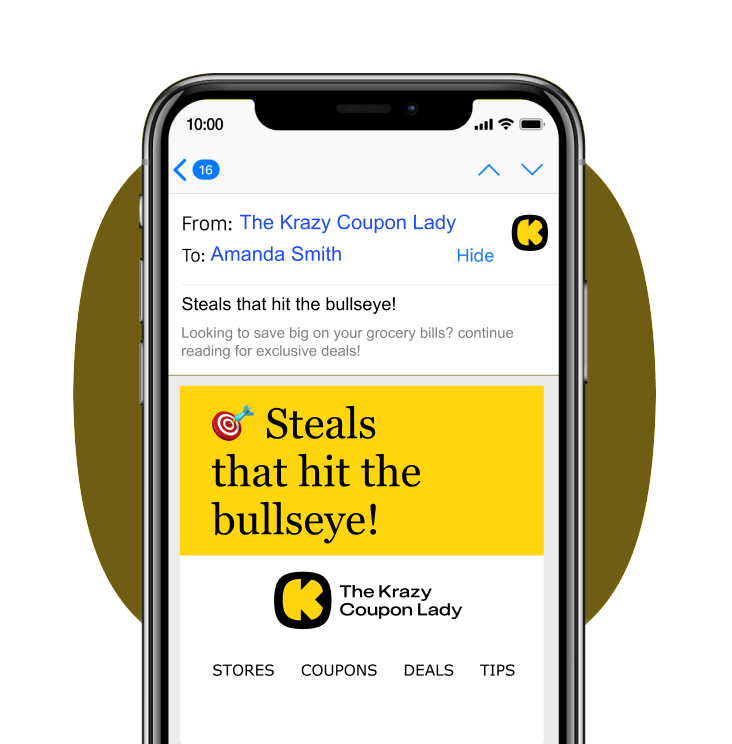Stores with the most lenient return policies tend to be customer favorites because they remove the anxiety from a purchase (especially expensive ones). But some retailers are going even further and offering refunds without requiring the physical return of the item.
These are known as returnless refunds, and they're growing in popularity. While you might think that costs a store big bucks, it's often more economical for the retailer than the alternative.
It's one of the many reasons retailers are doing away with free returns, particularly for online orders. Some even have a store return ban list in place.
Learn why stores are implementing these types of refunds, which retailers are most likely to offer them, and whether it’s a policy more businesses will adopt.
Download The Krazy Coupon Lady app or text HACKS to 57299 for the latest money-saving tips, deals, and coupons.
A returnless refund is when you keep the product after you get your money back.

When you contact a company to make an online return, they may choose to refund you without requiring the physical return of the item. Or, in some cases, if you still want the item but it arrived damaged, it will be a returnless exchange. This is when the company tells you to keep the damaged item but ships out a new one that's in perfect condition.
Stores known for refunds without returns
It's important to mention that while these stores have been known to offer returnless refunds on occasion, this isn't policy for every single item. These types of refunds are offered on a case-by-case basis; no refund is guaranteed to be returnless.
Amazon
Bombas
Living Spaces
SheIn
Target
Temu
Walmart
Wayfair
Woot
Refunds Without Returns: Real Customer Stories
We swear, refunds without returns aren't an urban legend. Here are a few personal stories to see how the policy unfolds.
Amazon
When KCL Deal Editor Max Burch realized he had purchased two sets of drain covers for his kitchen instead of just one, he contacted Amazon to return the extra.
"Instead, they told me not to worry about returning the second set, but still gave me a full refund for it," Burch says. "This has only happened to me with Amazon."
Bombas
If you shop Bombas, you know they have a 100% Happiness Guarantee. Kim Helsell, KCL's Data Analyst, is living proof the company abides by that policy.
"I bought a variety of their socks once and didn't like how tight one of the pairs felt," she says. "They told me to keep or donate the pair that was too tight and shipped me a different style."
Living Spaces
Before Ana Garcia purchased a brand new couch from Living Spaces, she measured, she comparison shopped — she did all of the things to ensure this was the couch. So when it arrived at her Los Angeles home with minor but still noticeable damage, Garcia was understandably disappointed.
“Could I have lived with a tiny bit of damage? Sure,” she says. “But I didn’t buy an as-is floor mode at a discount, I paid full price for a new couch.”
Garcia contacted Living Spaces’ customer service department, who asked her to share photos of the damaged couch. Within days they delivered a new couch (this time in pristine condition) and told her to keep the original one as well. She posted the slightly damaged couch to her local Buy Nothing group, and it immediately found a new home (and made that person’s day).
The What, the Why, and the How of Returnless Refunds
You've heard the stories, now let's get into the logistics.
What qualifies for a refund without a return varies by store.
This type of refund really depends on the retailer, but it typically boils down to a formula involving the item's value, the cost of processing the return, and sometimes even a customer's shopping history. But these are some key factors involved:
Items with a low value, where the cost of return shipping is higher than their worth.
Large, heavy, or bulky products due to the high costs and inconvenience of shipping them back.
Items that are damaged, defective, or unsuitable for resale.
It's cost-effective, customer-friendly, and earth-conscious.
Roxanna Couse is director of the Customer Experience Group at Bloomreach, a company that helps retailers create a better online shopping experience for customers. She points out that it doesn't always make sense for retailers to request an item be returned.
"There's a lot of data out there suggesting that sometimes all of the costly activities involved in processing the return can end up costing the business more than what the customer originally paid for the item," Couse says.
This policy is meant to build good will with customers.
Despite the saying, we all know the customer is not actually always right. However, Couse says stores are always drumming up ways to remove friction from the shopping experience.
"Not requesting the item be returned is one of the ways retailers can remove some friction in the customer journey, and in turn, potentially drive greater loyalty," she says. "Happy customers refer other customers. This could be a differentiating factor in how a brand is perceived, and a selling point to why shoppers purchase from one store over someone else."
Retailers take the environment into account when choosing returnless refunds.
You may hear stores talk about their sustainability efforts and all of the things they are doing to reduce waste; carbon emissions by cars, trucks, trains, planes — you name it; etc. And while this may sometimes feel like lip service, it's something a business can pride themselves on if they take action.
"This type of policy decreases transportation-related carbon emissions and reduces the overall energy and resources required to restock and resell returned products," Couse says. "It also minimizes the amount of packaging waste as returned items may need to be repackaged and prepped for resale.."
How likely is it that more stores will adopt returnless refund policies?
This will have a lot to do with how customers continue responding to the idea that they'll get their money back but not have to actually return anything.
"Having measures in place to prevent abuse of the policy is important as well — restrictions on the number of returns in a calendar year, for example," Couse says. "If retailers are considering implementing such a policy, they could benefit from using a test-and-learn approach to understand which product types and customer segments would be most suitable for it."
Our take on the returnless refund? Use it, don't abuse it.
We love a deal here at KCL, but not a five finger discount. So it's important not to seek out items that you think you'll get to keep for free if you try to return them. Consumers appreciate thoughtful stores, and stores appreciate honest customers and create these policies to maintain their loyalty. The returnless refund can be a win-win for everyone, so long as we all respect it.
Related Reading:
































Tell us what you think